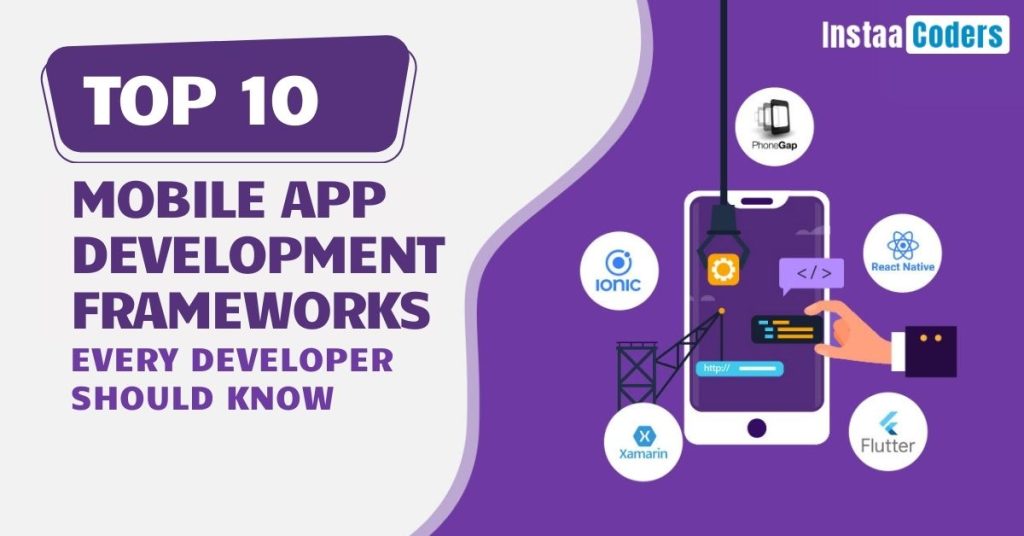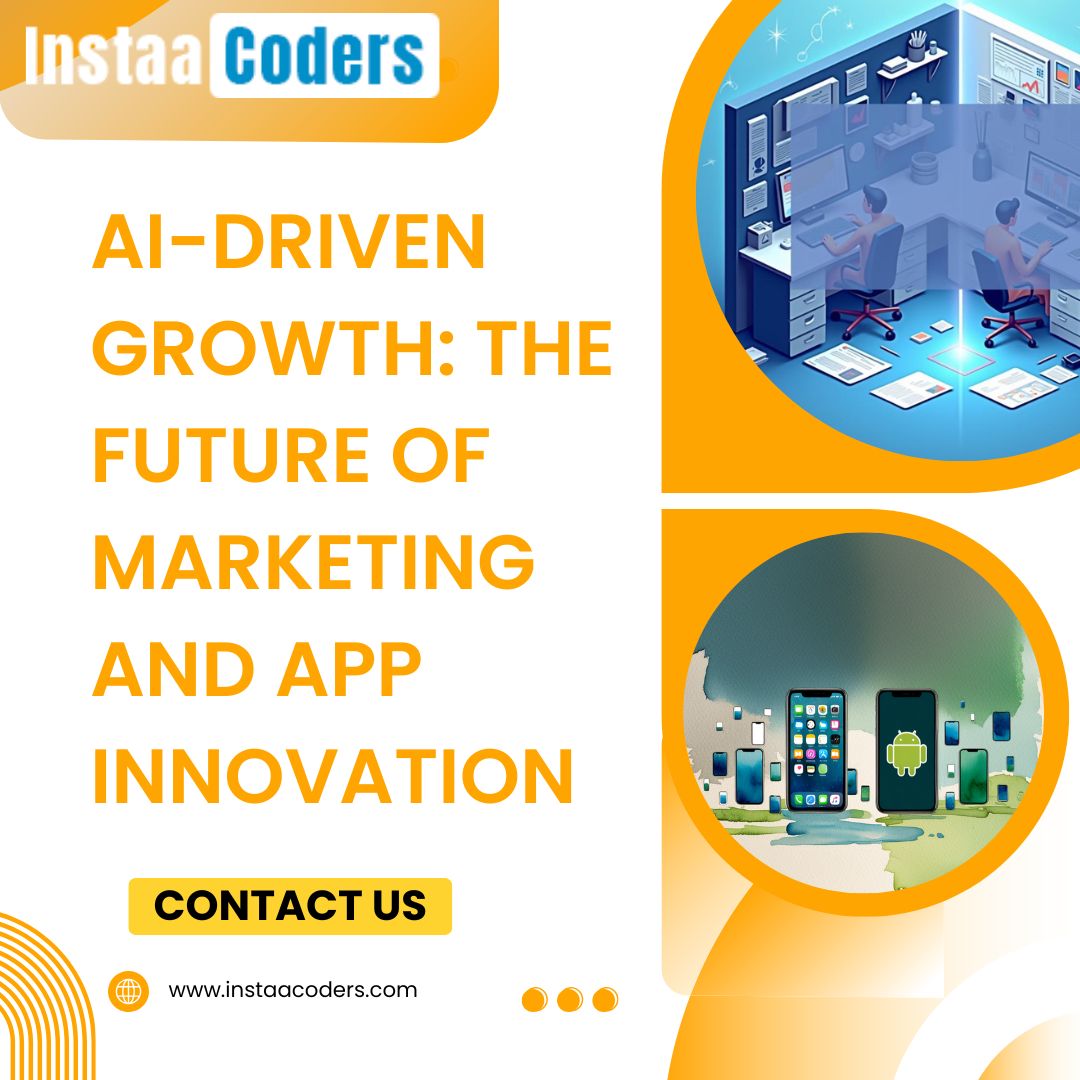Top 10 Mobile App Development Frameworks Every Developer Should Know

The mobile app development industry is evolving rapidly, and developers are constantly looking for the best tools to create high-performance, user-friendly applications. One of the most critical choices in the development process is selecting the right mobile app development framework. With so many options available, choosing the right one can feel overwhelming. In this blog, we’ll explore the top 10 mobile app development frameworks every developer should know in 2024.
Top 10 Mobile App Development Frameworks: Build Smarter Apps
1. Flutter
Flutter, developed by Google, is a game-changer in mobile app development. It’s an open-source UI toolkit that allows developers to create natively compiled applications for mobile, web, and desktop from a single codebase.
Key Features of Flutter:
- Hot Reload: See changes in real-time without restarting the application.
- Rich Widget Library: Flutter provides customizable widgets for seamless UI design.
- Cross-Platform: Build apps for Android and iOS with the same codebase.
- Dart Programming Language: Flutter uses Dart, known for its speed and efficiency.
Flutter is widely used for creating visually attractive apps, such as Google Ads and Alibaba.
2. React Native
Launched by Facebook, React Native is another popular framework for building mobile apps. It allows developers to write code once and run it on multiple platforms.
Key Features of React Native:
- Reusable Components: Save development time with reusable code.
- Third-Party Plugin Support: Access plugins for enhanced functionality.
- Strong Community Support: A large community of developers ensures continuous updates and solutions to challenges.
Some notable apps built using React Native include Instagram, Facebook, and Airbnb.
3. Xamarin
Xamarin, now owned by Microsoft, is a robust framework for creating cross-platform apps with C#. Developers can share approximately 90% of the code across platforms.
Key Features of Xamarin:
- Native Performance: Offers close-to-native performance.
- Extensive Libraries: Access to .NET libraries.
- Integration with Visual Studio: Enhanced productivity with Microsoft’s development tools.
Popular apps like Olo and Insightly have been built with Xamarin.
4. SwiftUI
SwiftUI is Apple’s modern framework for creating iOS applications. Designed specifically for Apple devices, it enables developers to build apps with minimal code.
Key Features of SwiftUI:
- Declarative Syntax: Simplifies UI design by describing what the interface should look like.
- Seamless Integration with Xcode: Build and preview apps in real time.
- Native Performance: Optimized for Apple’s ecosystem.
SwiftUI is ideal for developers focusing solely on iOS apps.
5. Ionic
Ionic is a popular choice for building hybrid mobile applications. It uses web technologies like HTML, CSS, and JavaScript to create mobile apps.
Key Features of Ionic:
- Cross-Platform Development: Build apps for Android, iOS, and the web.
- Pre-Built UI Components: Use templates and themes for faster development.
- Integration with Angular and React: Flexible framework options.
Ionic is known for apps like Diesel and MarketWatch.
6. Kotlin Multiplatform Mobile (KMM)
Kotlin Multiplatform Mobile enables developers to share code between Android and iOS while writing platform-specific code for unique features.
Key Features of KMM:
- Code Sharing: Share business logic across platforms.
- Native Integration: Interoperable with existing codebases.
- Google-Endorsed: Fully supported by Google for Android development.
KMM is perfect for teams already familiar with Kotlin.
7. PhoneGap (Apache Cordova)
PhoneGap, now known as Apache Cordova, is an open-source framework that uses standard web technologies like HTML5, CSS3, and JavaScript.
Key Features of PhoneGap:
- Cross-Platform: Supports Android, iOS, and Windows.
- Plugins for Device Features: Access camera, GPS, and other hardware features.
- Easy Learning Curve: Ideal for web developers transitioning to mobile development.
While PhoneGap is less popular than newer frameworks, it remains a reliable choice for simple apps.
8. Unity
Primarily known for game development, Unity is a powerful framework for creating both 2D and 3D mobile applications.
Key Features of Unity:
- Multi-Platform Support: Build apps for iOS, Android, and more.
- Rich Asset Store: Access pre-made assets and templates.
- High Performance: Optimized for games and high-graphic apps.
Games like Pokémon GO and Angry Birds 2 were built with Unity.
9. NativeScript
NativeScript is an open-source framework for creating native mobile apps with JavaScript or TypeScript.
Key Features of NativeScript:
- Native APIs Access: Access device hardware like GPS and cameras directly.
- Angular and Vue.js Integration: Build apps with popular web frameworks.
- Native Performance: Offers near-native performance for both Android and iOS.
NativeScript is a preferred choice for apps requiring rich UI and native functionality.
10. Sencha Ext JS
Sencha Ext JS is a comprehensive framework for building cross-platform web and mobile apps.
Key Features of Sencha Ext JS:
- Pre-Built UI Components: Over 140 components for fast development.
- Responsive Design: Seamless performance on all devices.
- Data-Driven Approach: Powerful data integration capabilities.
Sencha is ideal for enterprise applications that need robust functionality.
How to Choose the Right Framework?
When selecting a mobile app development framework, consider the following:
- Project Requirements: Does the app need to be cross-platform or native?
- Team Expertise: What languages and tools are your developers comfortable with?
- Budget and Timeline: Some frameworks reduce costs and speed up development.
Conclusion
Selecting the right mobile app development framework is crucial for the success of your application. Whether you’re building a simple app or a complex solution, frameworks like Flutter, React Native, and Xamarin offer unparalleled advantages. Consider your project needs, team expertise, and future scalability to make the best choice. With these frameworks in your arsenal, you’re well-equipped to deliver high-quality apps that users will love.
InstaaCoders Technologies takes pride in being a global leader in mobile app development, delivering excellence through innovative frameworks and cutting-edge technologies. Every framework we employ is meticulously curated by our dedicated team of developers to ensure optimal performance and exceptional user experiences.
Whether your project involves AI, Blockchain, Machine Learning, IoT, or other advanced technologies, we have the expertise to make it a success. Developing a robust and scalable app isn’t just about coding—it requires a trusted partner who can provide strategic guidance, and that’s where we come in.
Still wondering which framework or tech stack is right for your project? How to ensure a successful app launch? Let’s talk! Share your ideas with us, get a free consultation, and let us help you turn your vision into reality. With InstaaCoders Technologies, your app development journey is in the hands of experts who truly care about your success.










